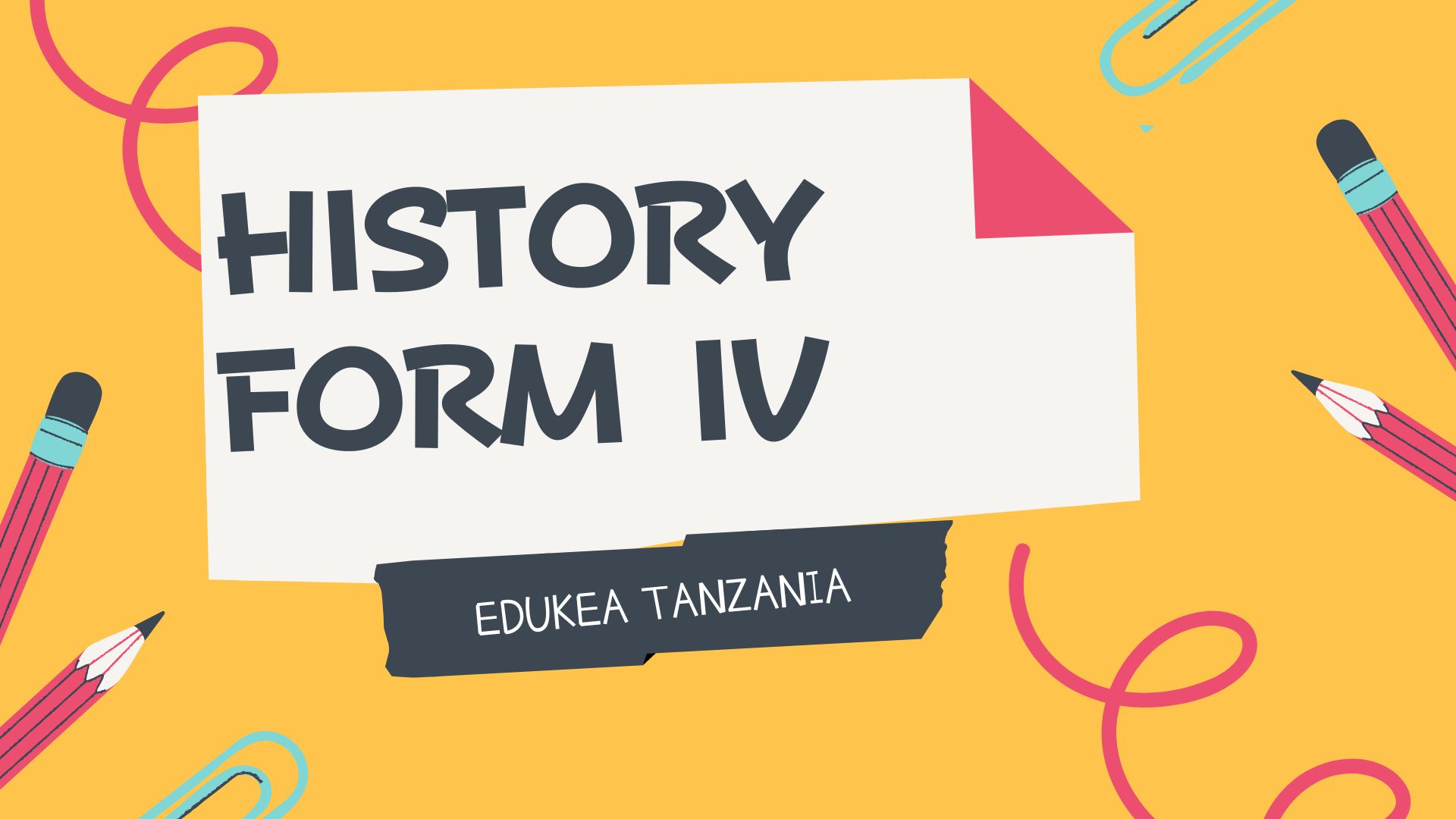The outcomes of studying History in Form Four include:
-
Historical Knowledge and Understanding: Students develop a comprehensive understanding of key historical events, movements, and developments, both within their own country and globally. They gain knowledge of historical facts, contexts, and interpretations.
-
Critical Thinking Skills: Students enhance their critical thinking skills by analyzing and evaluating historical evidence, interpretations, and arguments. They learn to assess the reliability of historical sources, consider multiple perspectives, and draw reasoned conclusions based on evidence.
-
Research and Inquiry Skills: Students develop research and inquiry skills, including how to locate, evaluate, and analyze historical sources. They learn to conduct independent research, formulate historical questions, and construct historical arguments based on evidence.
-
Historical Interpretation and Analysis: Students learn to interpret and analyze historical events and developments within their broader historical contexts. They explore the causes and consequences of historical events, the motivations of historical actors, and the impact of historical change on societies and civilizations.
-
Cultural and Social Awareness: Students gain insight into the cultural, social, political, and economic dimensions of historical events and processes. They develop an awareness of the diversity of human experiences and the complexities of historical change over time.
-
Ethical and Civic Engagement: Students reflect on the ethical dimensions of historical inquiry and the relevance of history to contemporary issues and debates. They develop a sense of historical consciousness and understand the importance of historical knowledge for informed citizenship and civic engagement.
-
Communication Skills: Students enhance their communication skills by expressing their historical understanding and analysis effectively, both orally and in writing. They learn to articulate their ideas, opinions, and arguments clearly and persuasively, using evidence from historical sources to support their arguments.
-
Empowerment and Agency: Through their study of History, students gain a sense of empowerment and agency, recognizing their capacity to understand and interpret the past, contribute to historical narratives, and engage critically with the world around them.
Overall, studying History in Form Four equips students with the knowledge, skills, and perspectives necessary to engage critically with the past, understand the complexities of historical change, and become informed and engaged citizens in the present and future.
In Form Four, History studies delve deeper into key historical events, themes, and concepts. Here's an overview of what students might cover in History at this level:
-
Advanced Study of Historical Events: Students study significant historical events and developments in more depth, exploring their causes, consequences, and broader historical contexts. They analyze primary and secondary sources to gain a deeper understanding of historical narratives.
-
Historiography and Historical Interpretation: Students learn about different historical interpretations and perspectives, including how historians analyze and interpret the past. They explore the influence of bias, ideology, and historical context on historical narratives.
-
National and World History: Students study both national and world history, examining key events, movements, and figures from various regions and time periods. They explore the interconnectedness of global history and its impact on local and national contexts.
-
Social, Political, and Economic History: Students explore the social, political, and economic dimensions of historical events and processes. They examine the experiences of different social groups, political movements, and economic systems throughout history.
-
Cultural and Intellectual History: Students explore the cultural and intellectual dimensions of history, including the development of art, literature, philosophy, and religion. They analyze how cultural and intellectual movements have shaped societies and historical change.
-
Historical Inquiry and Research Skills: Students develop research skills, including how to locate and analyze historical sources, evaluate their reliability and relevance, and construct historical arguments based on evidence. They learn to use a variety of primary and secondary sources to support their historical analysis.
-
Comparative and Cross-Cultural Analysis: Students engage in comparative analysis of historical events, societies, and cultures, exploring similarities and differences across time and space. They develop a broader perspective on historical change and continuity.
-
Historical Consciousness and Citizenship: Students develop historical consciousness, understanding the relevance of history to contemporary issues and debates. They reflect on the ethical dimensions of historical inquiry and the importance of historical knowledge for informed citizenship.
Through the study of History in Form Four, students deepen their understanding of the human experience, develop critical thinking and research skills, and gain insight into the complex forces that have shaped societies and civilizations over time.
